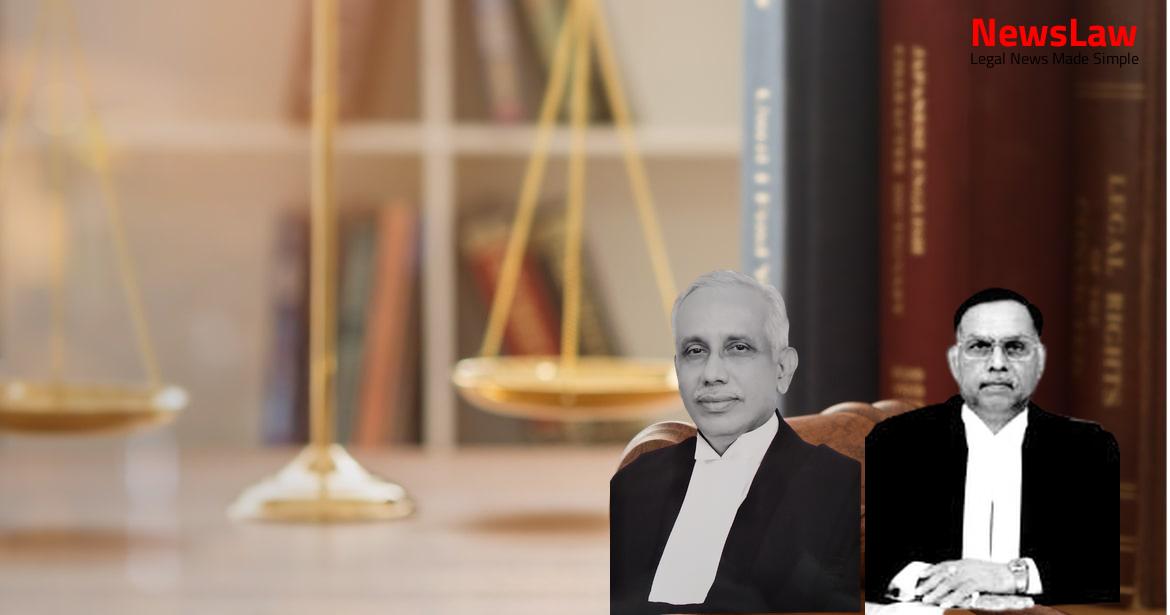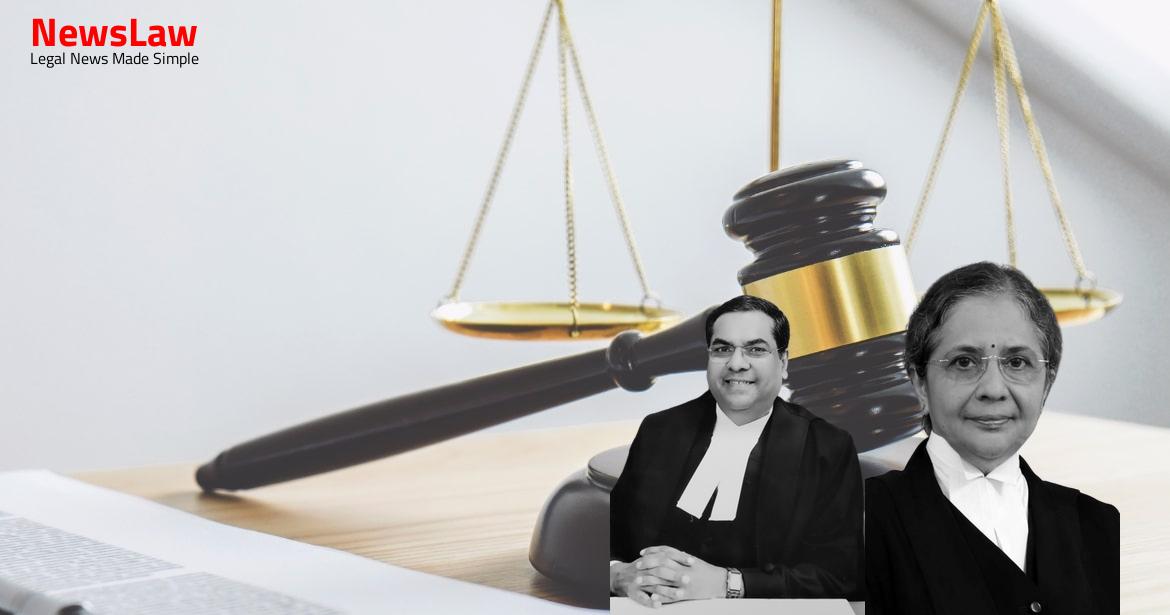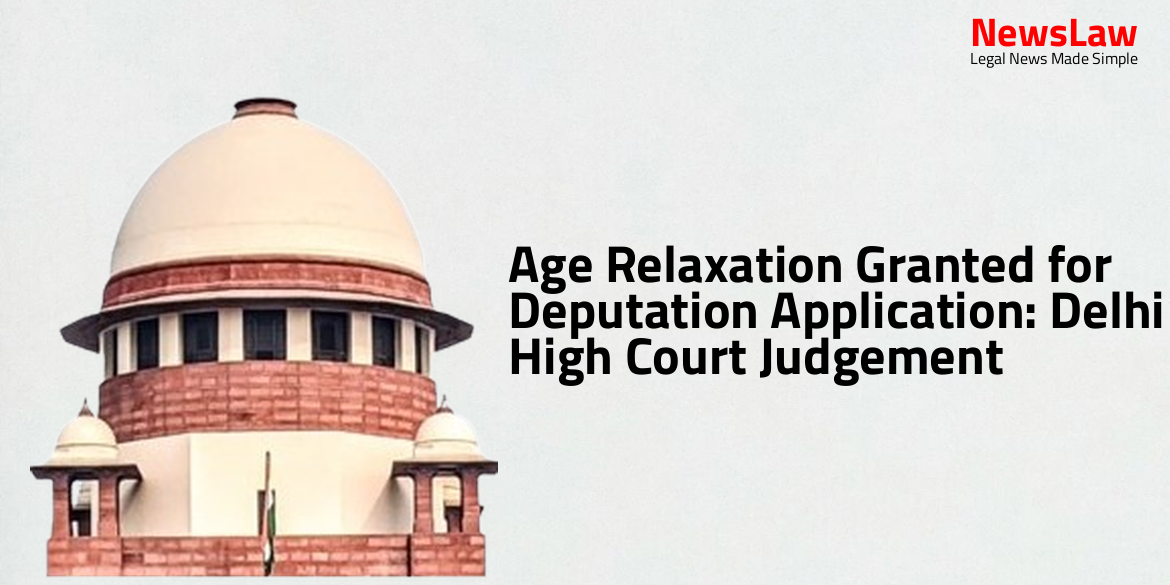Delve into the nuanced legal analysis of defining ‘Government premises’ in eviction proceedings as explored by the court. The interpretation of key definitions under the West Bengal Public Land (Eviction of Unauthorized Occupants) Act, 1962 plays a crucial role in determining the applicability of eviction orders. Understanding the intricacies of the law and its application in this case brings to light the importance of precise definitions in legal proceedings.
Facts
- The Corporation executed lease deeds in favor of respondent No.1 for constructing small-scale industrial units on plots in Tangra Industrial Estate.
- After multiple notices and extensions, the Corporation terminated the lease due to non-compliance with construction requirements.
- The Appellate Authority upheld the termination, ordering respondent No.1 to vacate the plots by a specified date.
- The Corporation then re-allots the plots to other small-scale industries awaiting allocation.
- A writ petition was filed by respondent No.1 challenging the termination notice and seeking relief.
- The High Court granted interim protection to respondent No.1, considering the application of the Act to lease agreements without structures on the land.
- Several appeals and applications were filed by both parties during the legal proceedings.
- Division Bench concluded that the Act did not apply to the premises
- Order of eviction passed by appellant No.5 against respondent No.1 was quashed
- Division Bench held that the Corporation is not a government undertaking
- Premises were not considered as government premises
Also Read: Ensuring Fairness: Court’s Discretion in Document Production
Arguments
- The appellant argues that the Corporation is a Government company registered under the Companies Act, 1956.
- The High Court’s error in not recognizing the Corporation as a Government undertaking is highlighted.
- The premises in question, leased to respondent No.1, is considered as Government premises as it is part of a larger area under the administrative and financial control of the State Government.
- The Memorandum and Article of Association demonstrate the Corporation’s alignment with the State Government’s control.
- The expression ‘any premises’ in Section 2(a) is wide enough to cover even bare land.
- The term ‘premises’ is defined in Section 2(c) of the Act to avoid repugnancy between sections 2(a) and 2(c).
- The plot of land leased out did not contain any structure.
- The appellant-Corporation does not satisfy the definition of ‘Government undertaking’ in Section 2(b) of the Act.
- The premises in question is not covered under the provisions of the Act.
- To include the definition of ‘Government premises’ in Section 2(a), it would have to be inserted.
Also Read: Legal Battle Over Elephant Corridors
Analysis
- The definition of ‘premises’ under Section 2(c) and ‘Government premises’ under Section 2(a) of the Act are crucial for determining the applicability of eviction proceedings.
- In this case, the leased land did not have any structures at the time of initiation of eviction proceedings, leading to a question of whether it qualifies as ‘Government premises’.
- The expression ‘includes’ in the definition of ‘premises’ is significant as it expands the scope of ‘Government premises’ under the Act.
- The Corporation’s status as a government undertaking and the nature of the leased land are essential factors in deciding the jurisdiction of the eviction proceedings.
- The complexity of recovering possession under the Transfer of Property Act is contrasted with the expedited process provided by the West Bengal Public Land (Eviction of Unauthorized Occupants) Act, 1962.
- Government premises defined as premises owned by the State Government or a Government undertaking excluding official residences of authorized individuals
- Definition of Government undertaking provided as a body corporate under Central or State Act under state administrative control or with state proprietary interest
- Definition of premises includes buildings, huts, parts of buildings, seats in rooms let separately, gardens, grounds, outhouses, furniture, fittings, fixtures supplied for tenant’s use
- Termination of tenancy in Government premises upon expiry of notice to quit served in prescribed manner
- Termination of tenancy also applicable if tenant violates lease terms, builds or acquires a house within a reasonable distance, or defaults on rent for three consecutive months
Also Read: Ensuring Procedural Justice: Blacklisting in Government Tenders
Case Title: WEST BENGAL SMALL INDUSTRIES DEVELOPMENT CORPORATION LTD. Vs. M/S. SONA PROMOTERS PVT. LTD. AND OTHERS (2020 INSC 309)
Case Number: C.A. No.-002201-002201 / 2020



